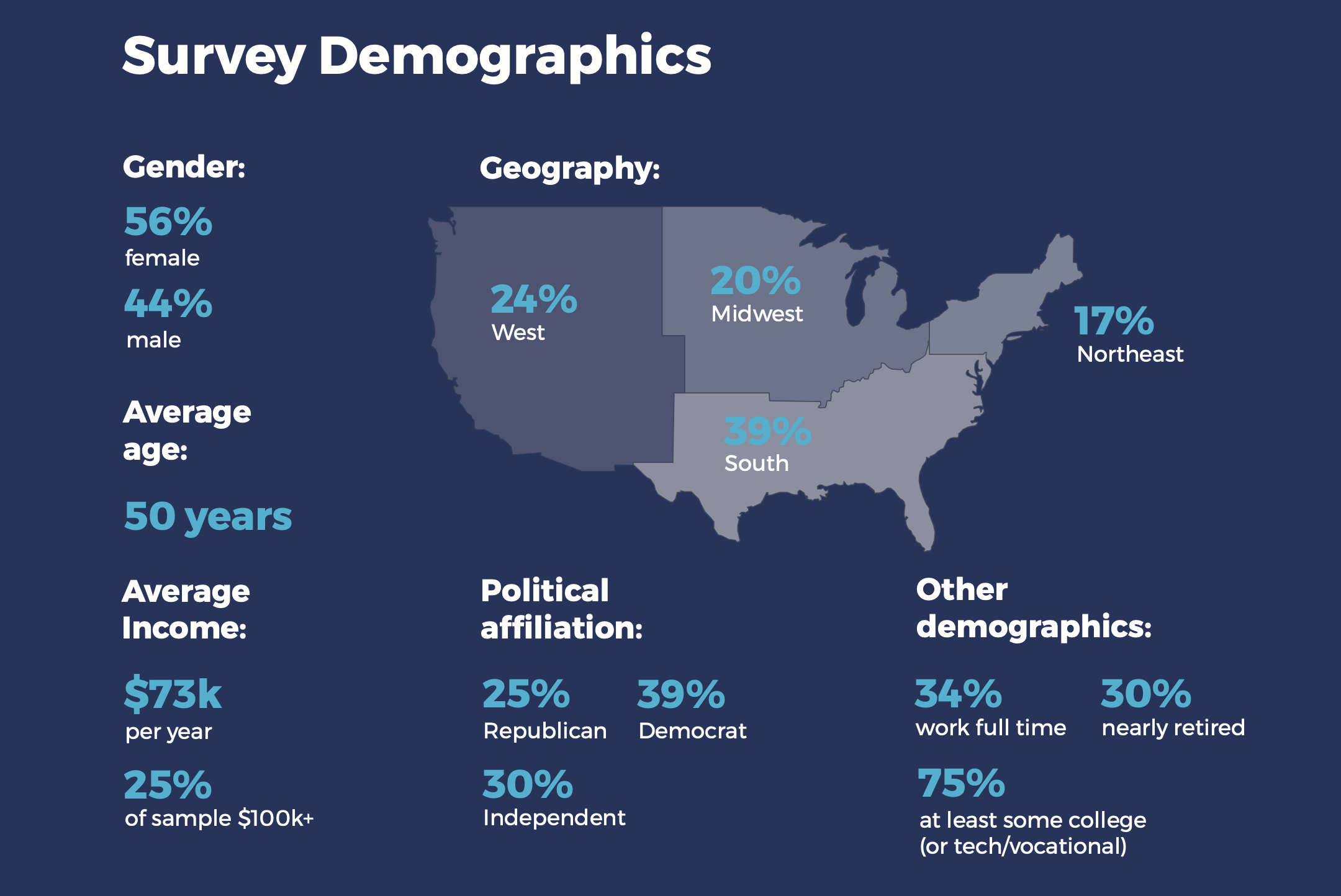IntelliSurvey is excited to announce we will be exhibiting at the annual Insights Association...
AI In Healthcare: A Glimpse Into American Perspectives
As the healthcare sector embraces a wave of technological advancements powered by Artificial Intelligence (AI), it is imperative to understand the diverse perspectives of different groups of patients towards this shift.
IntelliSurvey recently conducted a study of 1,000 Americans to better understand attitudes and behaviors around AI in healthcare. We identified four distinct segments using a two-step clustering approach (hierarchical and K-means). In this post, we delve into the survey results to shed light on the varying attitudes within those segments.

Eager Adopters: Balancing Enthusiasm With Caution (28% of Sample)
The Eager Adopters are generally young (70% are Millennials or Gen Z) and informed. While they are overall positive about AI in healthcare, they do not want to see technology advance too quickly or interfere with their doctor-patient relationships.
These individuals are particularly active in their healthcare, paying close attention to their mental health and physical influences, such as the nutritional content of their food. Unlike their older counterparts, they are most likely to seek care from sources other than their primary care provider (PCP), such as virtual healthcare physicians (45%).
Eager Adopters are most likely to see themselves as tech leaders, keeping up with trends and sharing information with others. Notably, they have a higher level of familiarity with AI compared to other groups, with 47% showing an understanding against a 26% average across other segments. This familiarity is likely the driving factor behind their feelings about the speed of AI integration. Because they are very familiar with AI, they probably have a better understanding of the risks of implementing technology too quickly.
“I feel like the technology isn't quite there yet. I know that AI can be useful for a lot of things and I see the potential, but there's just no way that we can implement that kind of technology, practically, without supervision from an actual doctor.” -Eager Adopter
Tech-Averse Loyalists: Holding On to the Tried and True (24% of Sample)
As the name suggests, respondents in this segment are most comfortable with their current healthcare providers. The tech-averse loyalists primarily consist of females (61%), with over half of the segment representing the Boomer generation or older (53%). The demographic profile indicates a reliance on long-term care providers, with a reluctance to venture outside their comfort zone where technology is concerned.
Loyalists value their relationships with their primary care doctors and specialists, appreciating ready access to them in a traditional office environment. These relationships are often long-standing due to their decreased likelihood of changing doctors, even if those doctors might not share the same values. They favor the comfort and familiarity of sticking with the status quo and prefer not to be pushed into using technologies that are unfamiliar or uncomfortable.
Given their age and possibly limited exposure to new technologies, they are not very open to the idea of integrating AI rapidly in healthcare. For this segment, it would be best if AI innovations were introduced gradually, giving them enough time to adapt and adjust.
“I feel currently that AI is still too young to use as a primary source in the medical field. The human touch is a necessary part of healthcare.” -Tech-Averse Loyalist
Traditional Patients With Optimism: Trusting Doctors and Hoping for the Best (23% of Sample)
Representing an older male demographic (average age of 55), members of this segment tend to believe that technological advancements will improve outcomes and that AI is being developed at the right pace. Advances in technology are welcome, especially those that reduce physician errors.
These patients are more likely to have a long-term, trusting relationship with their healthcare providers. They are most likely to have visited their primary care physician in the past two years (90%). This is a testament to the importance of personalized care, which can help to improve patient outcomes.
This segment is comfortable with physicians currently using AI, however, believe that technology should complement rather than replace the human touch.
“It seems like it would be a major help in disease prevention and surgery but ultimately I want a real person in control.” - Traditional patient
Ambivalent Joes & Josephines: On the Fence (26% of Sample)
Lastly, the segment comprising Ambivalent Joes and Josephines (J&J) stands neutral on the topic of AI in healthcare. This group has lukewarm interest in the topic, neither fully endorsing nor opposing AI advancements in the healthcare sector.
Their tepid response is not an issue of familiarity with AI in healthcare. Rather, this segment is familiar with AI in and outside of healthcare and has stated they are relatively comfortable with it. This suggests that their lukewarm response is not due to a lack of knowledge but rather a lack of enthusiasm for healthcare applications of AI.
The members of the group seem content to remain neutral. They are likely waiting for more evidence before becoming invested in the topic.
“I think right now it could be used as a help, but not enough is known about it to say how much it can be relied upon and trusted. I would think at this time it could be enormously useful, but should be used with caution.” - Ambivalent J&J
Looking Forward
As the healthcare landscape continues to undergo transformations powered by AI, it is crucial to understand the nuanced perspectives of different patient groups. Our report, “AI in Healthcare Gives Consumers Pause,” features additional insights on these segments and further results from the study that can be used to create a more inclusive, patient-centric approach to healthcare in the digital age.



